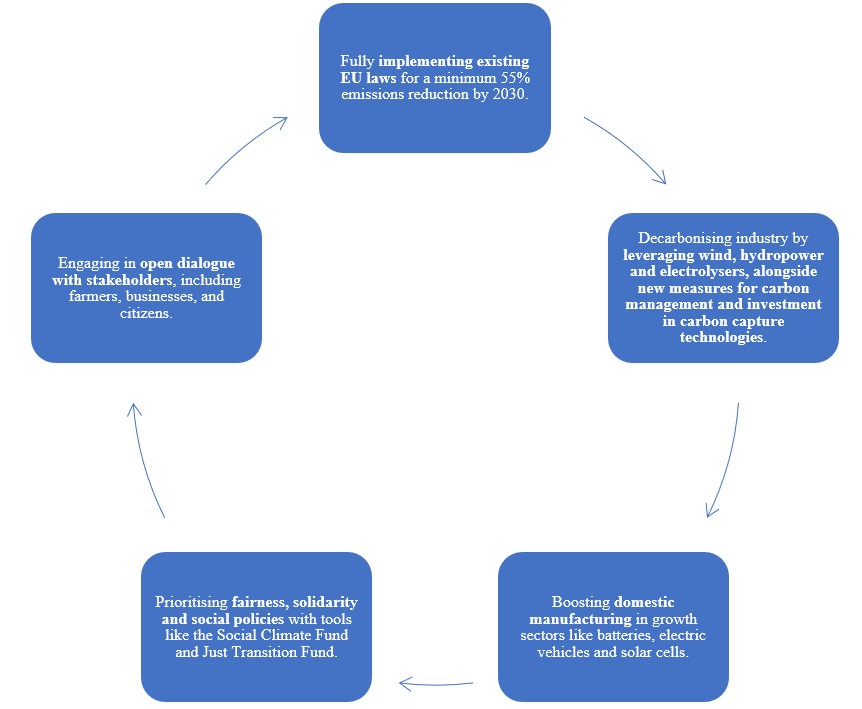Legislative news and ESG initiatives in Estonia, Latvia, Lithuania
Status of the corporate sustainability reporting directive’s transposition into local laws
In Estonia, the draft law transposing the CSRD was published on 23 February 2024 and is currently waiting for approval from ministries. It is expected to come into force on 6 July 2024. The draft law proposes changes to three main laws – the Accounting Act, the Auditors Activities Act and the Securities Market Act – and some associated regulations. The draft also amends the size criteria for undertakings. According to the impact assessment, the number of undertakings affected by the draft law is around 200 and the costs of preparing the first sustainability report vary from EUR 250,000 to EUR 50,000 depending on the size of the undertaking.
In Latvia, the draft law was published on 29 January and is currently under review by the Cabinet of Ministers. It is expected to come into force on 6 July 2024. The obligation to prepare a sustainability report will be phased in starting in the 2024 reporting year and will apply to all categories of companies falling within the scope of the Directive. One of the key requirements is that sustainability reports, including group-level reports, are to be made available in Latvian, with an indication of whether or not the translation is a certified one done by an auditor.
The draft law entails amendments to 10 other laws, including the Accounting law, the Law on Annual Statements and Consolidated Annual Statements, the Financial Instrument Market Law and others.
In Lithuania, the draft law package transposing the CSRD into local law was published back in November 2023, and should be adopted by the parliament by July 2024. The package consists of twelve draft laws, the most important of them being draft Law on Accountability of Companies and Groups of Companies. The adjusted criteria for large companies (now meaning companies with a balance sheet total of EUR 25 million rather than EUR 20 million, and a net turnover of at least EUR 50 million rather than EUR 40 million) are already reflected in the draft law. The criterion of having at least 250 employees remains unchanged. As a reminder, a company is considered large if the figures on its balance sheet exceeds at least two of these three criteria.
EU-level news
Draft EU sustainability reporting standards for small companies
The European Financial Reporting Advisory Group (EFRAG) announced the release of new exposure drafts containing proposed sustainability reporting standards for small and medium-sized enterprises (SMEs) under the EU’s Corporate Sustainability Reporting Directive (CSRD).
As part of the mandate granted to it by the CSRD to provide technical advice to the European Sustainability Reporting Standards (ESRS), the EFRAG has been mandated to develop the standard for SMEs that are public-interest entities. These include, among others, SMEs whose transferable securities (bonds, shares and other securities) are admitted to trading on a regulated market in the EU.
The CSRD took effect at the beginning of 2024 for large public-interest companies with over 500 employees, and will take effect for large companies in 2025, and for listed SMEs in 2026.
The consultation on the drafts will be open until 21 May 2024.
Two year delay of sustainability reporting standards for specific sectors and non-EU companies
The Council and the European Parliament have, on 14 February 2024, reached a provisional deal to postpone the adoption of the standards for certain sectors and third-country undertakings for two years, to 30 June 2026. The date of application of the CSRD remains unaffected, despite the fact that the reporting standards will be available later. The provisional agreement reached with the European Parliament still has to be endorsed and formally adopted.
Proposal for a new ESG ratings regulation
The Council and European Parliament reached a provisional agreement on a proposal for a regulation on environmental, social and governance (ESG) rating activities, which aims to boost the confidence of investors in sustainable products.
ESG ratings provide an opinion on a company or a financial instrument’s sustainability profile, by assessing its exposure to sustainability risks and its impact on society and the environment. ESG ratings have an increasingly important impact on the operation of capital markets and on investor trust in sustainable products.
EU to reduce textiles and food waste
Members of the EU Parliament in the Environment Committee adopted their position on the proposed revision of the Waste Framework Directive, with 72 votes in favour, none against and three abstentions.
The proposal to amend the Waste Framework Directive focuses on two resource-intensive sectors: textiles and food, having the objective of reducing environmental and climate impact; increasing environment quality and improving public health associated with textiles waste management, in line with the waste hierarchy; and of reducing the environmental and climate impact of food systems associated with food waste generation. Preventing food waste will also contribute to food security.
EU to reduce CO2 emissions from new trucks and urban buses
The European Commission welcomes the agreement between the European Parliament and Council on a provisional political agreement strengthening CO2 emissions standards for new heavy-duty vehicles (HDVs) entering the EU market from 2030. The Regulation will set new ambitious CO2 emissions reduction targets for 2030, 2035 and 2040.
The agreement sets CO2 emissions reduction targets for HDVs of 45% for 2030–2034, 65% for 2035–2039 and 90% as of 2040, when compared to 2019 levels. The scope of the Regulation has been expanded and these standards will now apply to almost all trucks (including, starting from 2035, vocational vehicles such as refuse lorries, tipper trucks and concrete mixers), urban buses, long-distance buses and trailers. Specific emissions reduction targets are also set for trailers (7.5%) and semi-trailers (10%), starting from 2030.
To accelerate the transition to zero-emission public transport across Europe, as of 2030 new urban buses must have emissions reduced by 90%. All new urban buses will have to be zero-emissions by 2035.
The European Parliament and Council now need to formally approve the agreement. Once this process is completed, the new legislation will be published in the Official Journal of the Union and enter into force.
Commission welcomes political agreement on EU-wide certification scheme for carbon removals
The Commission welcomes the provisional agreement between the European Parliament and the Council on the first EU-wide voluntary framework for the certification of high-quality carbon removals. This certification framework will boost innovative carbon removal technologies and carbon farming which contribute to the EU’s climate, environmental and zero-pollution goals. This new framework will help the EU to reach climate neutrality by certifying carbon removals and carbon farming to ensure that they are transparent and trusted, preventing greenwashing and creating new business opportunities. The agreement sets out certification rules for:
- carbon farming, such as restoring forests and soils and avoiding soil emissions, rewetting of peatlands, more efficient use of fertilisers, and other innovative farming practices
- industrial carbon removals, such as bioenergy with carbon capture and storage, or direct air carbon capture and storage
- binding carbon in long-lasting products and materials, such as wood-based construction materials or biochar
The European Parliament and Council now need to formally approve the agreement. Once this process is completed, the new legislation will be published in The Official Journal of the European Union and enter into force.
Recommendation for 2040 target to reach climate neutrality by 2050
European Commission is charting the path to reach the goal of making the European Union climate-neutral by 2050. It recommends a 90% net greenhouse gas emissions reduction by 2040 compared to 1990 levels, which is in line with recent scientific advice and the EU’s commitments under the Paris Agreement. Key actions include:

Industry initiatives and guidelines
Insurance risk dashboard
The European Insurance and Occupational Pensions Authority (EIOPA) has published its February 2024 Insurance Risk Dashboard (here).
According to the Dashboard, ESG-related risks remain stable at medium level. The dashboard notes that the median exposure towards climate-related assets is around 3.3% of total assets, while the investments in green bonds are at around 7% of the total green bonds outstanding.
Subscribe here if you would like to receive ESG-related newsletters directly to your email.
Our ESG team is at your disposal, should you need advice on any legal issues you are facing.
Contact the authors:

Co-head of Sorainen ESG team, Lithuania
vitalija.impoleviciene@sorainen.com
Senior Associate, Latvia
Associate, Estonia




